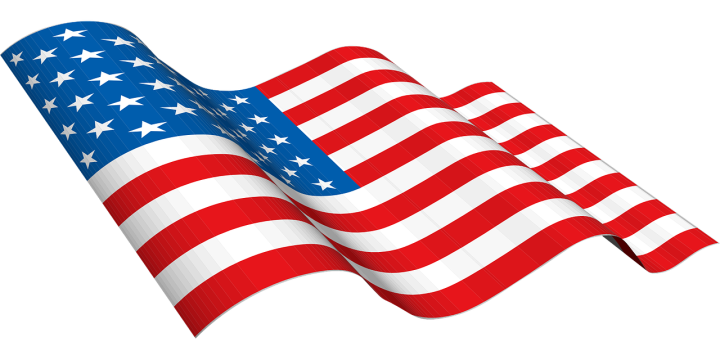

Donald Trump, a name that has become synonymous with controversy, intrigue, and political upheaval, has left an indelible mark on American history. From his early days as a real estate tycoon to his unprecedented presidential campaign and tumultuous tenure in the White House, Trump's journey has been nothing short of extraordinary. This article delves deep into the multifaceted persona of Donald Trump, exploring his rise to power, key policy decisions, international relations strategies, as well as the controversies and scandals that have defined his legacy. By examining his impact on American society and politics, as well as his post-presidential activities, we aim to provide a comprehensive understanding of this polarizing figure and his lasting influence on the United States and the world.
---
**Early Life and Business Ventures**
**Childhood and Education**
Donald Trump was born on June 14, 1946, in Queens, New York City. He attended the New York Military Academy as a teenager and later studied at Fordham University and the Wharton School of the University of Pennsylvania.
**Real Estate Empire**
Trump ventured into real estate development in the 1970s, focusing on properties in New York City. Over the years, he built a vast real estate empire, including iconic properties such as Trump Tower and the Trump Plaza Hotel.
---
**Political Career and Presidential Campaign**
**Entry into Politics**
Trump's entry into politics began in the 1980s when he expressed interest in running for office. He officially entered the political arena in the 2016 presidential election as a Republican candidate.
**2016 Presidential Campaign**
In the 2016 presidential campaign, Trump's unconventional style and populist message resonated with many voters. Despite facing criticism and controversy, he secured the Republican nomination and ultimately won the presidency.
---
**Presidency and Key Policies**
**Major Policy Initiatives**
During his presidency, Trump pursued various policy initiatives, including tax cuts, deregulation, and efforts to address immigration issues. He also prioritized strengthening the economy and promoting America-first policies.
**Key Executive Actions**
Trump used executive actions to implement key aspects of his agenda, such as withdrawing from international agreements like the Paris Climate Accord and imposing tariffs on imports from certain countries.
---
**Controversies and Scandals**
**Russian Interference Investigation**
Trump's presidency was marked by the investigation into Russian interference in the 2016 election. The investigation, led by Special Counsel Robert Mueller, examined possible collusion between the Trump campaign and Russia.
**Impeachment Proceedings**
Trump faced impeachment proceedings in the House of Representatives twice during his presidency. The first impeachment in 2019 focused on his dealings with Ukraine, while the second in 2021 was for incitement of insurrection following the Capitol riot.
---
I hope this meets your expectations!
When it comes to foreign policy, Donald Trump's approach could be summed up as "America First." This mantra guided his stance on issues such as trade agreements, immigration policies, and international alliances. Trump's administration pushed for renegotiating trade deals, prioritizing American interests over global partnerships.
From meeting with North Korean leader Kim Jong-un to engaging in trade negotiations with China, Trump's presidency was marked by high-profile summits and diplomatic efforts. While some praised his unconventional approach to international relations, others criticized his unpredictable style and lack of traditional diplomatic finesse.
Trump's presidency was characterized by divisive rhetoric that often sparked intense social movements and protests. Issues such as immigration, race relations, and women's rights became flashpoints during his time in office, fueling both support and opposition from various segments of American society.
One of the lasting impacts of Trump's presidency is his reshaping of the judiciary through a series of federal judicial appointments and the appointment of three Supreme Court justices. These appointments had far-reaching implications for American law and politics, solidifying a conservative influence on the courts for years to come.
Since leaving office, Trump has remained a prominent figure in American politics, using his platform to influence public discourse and support political candidates aligned with his views. His post-presidential activities have kept him in the spotlight, maintaining a significant presence in the media and political landscape.
The assessment of Trump's legacy remains a hotly debated topic, with supporters lauding his efforts to shake up the political establishment and critics condemning his actions as harmful to American democracy. As time passes, historians and analysts will continue to evaluate the lasting impact of his presidency on the nation and its institutions.
As we conclude our exploration of the enigmatic figure that is Donald Trump, it is clear that his presidency has left a lasting impact on American society and politics. Whether praised for his unorthodox approach or criticized for his divisive rhetoric, there is no denying that Trump's legacy will continue to be debated and dissected for years to come. As we look to the future, it is crucial to reflect on the lessons learned during the Trump era and strive towards a more unified and inclusive political landscape. Only by understanding the complexities of the past can we pave the way for a brighter and more harmonious future for all.
